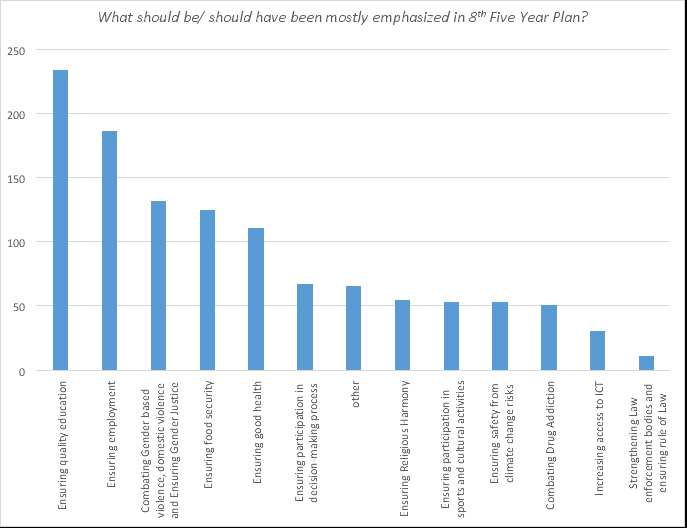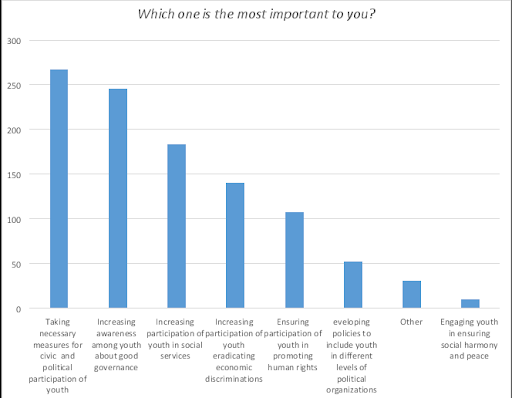Where is the youth in policy making?
With the world battling the COVID-19 crisis, the youth of Bangladesh have stepped up along with the frontliners. Bidyanondo Foundation is one such youth-led organisation, which has been one of the first responders to actively help the community in this crisis. They have been disinfecting several areas and hospitals across the country, providing food, medical supplies, financial assistance and other support to the doctors, police and other frontliners, people residing in remote areas, victims of the Amphan cyclone, orphans, etc.
Like Bidyanondo Foundation, many other youth-led organisations are coming forward through different interventions, whether they have been in the limelight or not. While all these initiatives are noteworthy, they are also a reminder of the country’s setback in carving out an inclusive space for youth from different strata of the society to come together and have a say in decision-making. Moreover, given that the country has been experiencing a demographic dividend for over a decade, we would have been able to reap optimal benefits by now if inclusive policies were in place. If the youth are not included in policies and decision-making, we will be unaware of their needs. Also, the active youth population that is trying to bring change will be left ignored.
Umama Zillur, Founder, Kotha, and Research Associate, Power and Participation Research Centre (PPRC), shares, “With such a huge population of young people in our country right now, ‘demographic dividend’ has become a common term thrown around in policy circles. Often times, the extent of youth involvement is limited to providing knowledge input with a minimal role to play in determining policy priorities, etc. We have to allow the youth to be critical players in designing programmes, especially those that concern their peers.
“Besides, in the post-COVID-19 world, it would be more important to acknowledge that the youth population is not monolithic; there are unique vulnerabilities within the broader category of youth. The needs of women, girls and gender diverse youth must be addressed in multiple dimensions – health, education, employment, etc. – as they will be significantly worse off otherwise,”she adds.
A recent study titled “Representation of Young People in the Local Government (Union Parishad), National Parliament and Political Parties in Bangladesh: Challenges, Opportunities and Way Forward” by ActionAid Bangladesh and Global Research & Marketing (GRM), conducted in five districts across the country among youth aged 15 to 35 years, has identified key reasons as to why the youth are unable to participate fully in the country’s decision-making structures in local government institutions, national parliament, and the four major political parties. The challenges include poverty, illiteracy and health concerns; gender biases and religious conservatism, especially towards women;
lack of skills development and capacity-building opportunities;
hopelessness due to political corruption, killings, nepotism, violence; lack of proper implementation of Right to Information Act, etc. Moreover, young people feel frustrated that even though the political leaders in their communities let them share their opinions sometimes, these are rarely considered while making the final decisions.
Although the National Youth Policy-2017 states that the youth will have to be involved in the decision-making process at local, national and international levels, it does not mention the way towards youth representation.
The national parliament itself lacks reserved seats for the youth. Lack of democratic practice in political parties also creates a barrier for the youth to understand politics and be hopeful. Besides, there is a dire need to increase women’s participation, especially young women’s participation, in politics. For instance, the percentage of women elected in the parliament was less than eight percent in the 11th National Parliamentary Election held in December 2018.
Dr Khondaker Golam Moazzem, Research Director, Centre for Policy Dialogue (CPD) shares, “There is a prevailing notion in our country that policy is not a focal point for the youth. Both the decision-makers and the receivers bear this ideology, which makes it extremely difficult for the youth to get involved in policy interventions and decisions. Consequently, the youth-led initiatives, especially during the COVID-19 situation, are not getting as much support as they would have if the right policies were in place.”
He adds, “More allocation should be made for projects such as e-business development, establishment of BSCIC industrial parks, API industrial estates, etc. The Finance Minister should prepare a 'Youth Budget' and highlight it in the national parliament while presenting the national budget. All kinds of local government public representative bodies should make it mandatory to include positions for youth representatives. These elected youth representatives should have specific job responsibilities concerning youth development at the local level. Besides, Youth Development Council can be established under the Youth Organisations (Registration and Management) Act 2015 to help set up a National Youth Parliament in the country. Youth leaders can be established starting from Union Parishads.”
He further emphasises upon creating youth leaders in other sectors and concerns related to the academia, culture, sports and religious organisations, transgender rights, marginalised groups, women’s empowerment, etc., and stressed on the need for youth-led initiatives which can better address issues of the segment of the youth population involved in crimes, radicalisation, addiction, etc., compared to traditional means and instruments.



